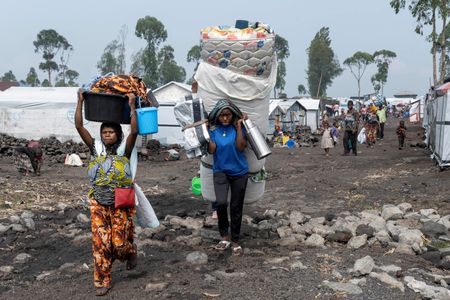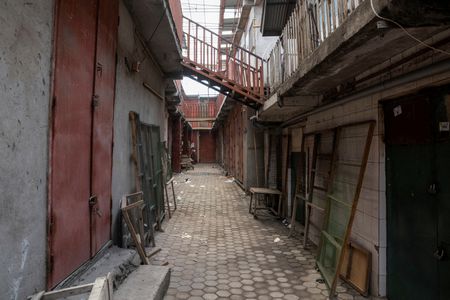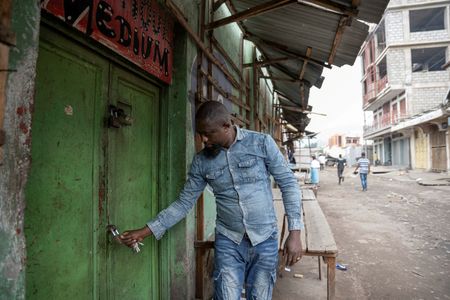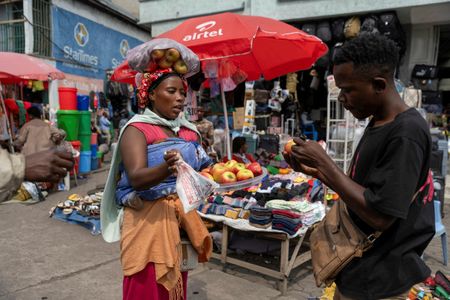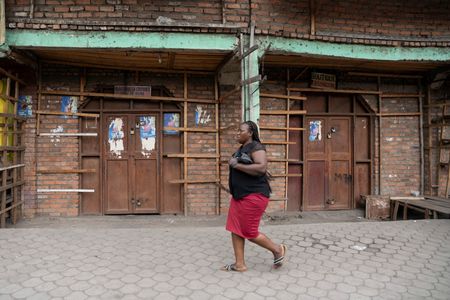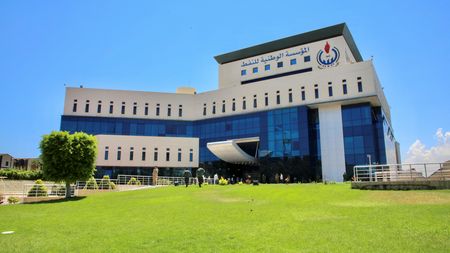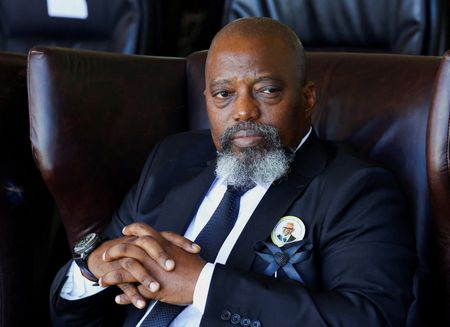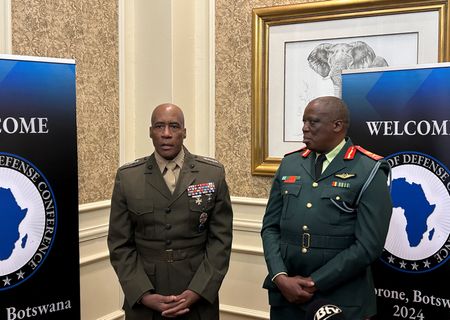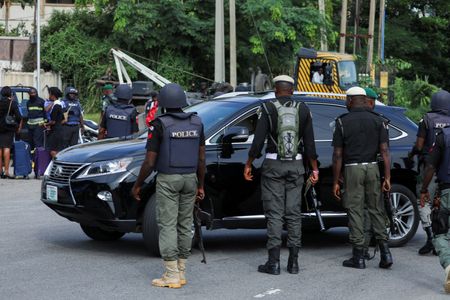(Reuters) – The military governor of Democratic Republic of Congo’s North Kivu province has died from gunshot wounds suffered on the front line during an offensive by M23 rebels, the army said on Friday.
The rebels are advancing on two fronts near the provincial capital Goma in the nation’s turbulent east, where tens of thousands are fleeing and the U.N. is warning that the violence could spill into a wider regional war.
The U.N. Security Council will meet on Monday to discuss the situation, diplomats said.
Major General Peter Cirimwami Nkuba, who led the province since 2023, has died, army spokesman Sylvain Ekenge said at a press briefing. An internal U.N. report seen by Reuters said he was injured while supervising troops 20 km (12 miles) from Goma.
Ekenge said Nkuba was wounded “on the field” and evacuated to the capital Kinshasa, where he succumbed to his injuries. He did not provide any further details on the circumstances.
Fighting has flared more fiercely in Congo’s mineral-rich east since the start of the year as the Tutsi-led M23 group seized control of more territory than ever before.
After seizing the town of Minova on Tuesday, the rebels moved into the town of Sake, around 20 km (12 miles) west of Goma, the provincial capital and home to over 1 million people. They have also attacked along the main road from the north of the city, cutting off main supply routes.
On Friday, the rebel Congo River Alliance (AFC), which includes M23, said they planned to take Goma.
The U.N. peacekeeping mission in Congo, MONUSCO, said that its heavy artillery had carried out fire missions over the past 48 hours against M23 positions in Sake, and repositioned its forces to strategic locations to reinforce its deployment in and around Goma.
Nine peacekeepers have been injured, U.N. spokesperson Farhan Haq said on Friday.
Congo and the U.N. accuse neighbouring Rwanda of fuelling the three-year insurgency with its own troops and weapons.
Rwanda denies this.
M23 takes its name from a March 23, 2009, agreement between the Congolese government and previous rebels.
The rebels said the government had violated the deal. They say they defend Tutsi interests against ethnic Hutu militias whose leaders participated in the 1994 Rwandan genocide.
The number of people displaced by the fighting this year has doubled to 400,000 since last week, U.N. refugee agency UNHCR said, warning that hospitals were nearing capacity.
The International Committee of the Red Cross (ICRC) reported a “cruel” lack of medical supplies in Goma, with patients left waiting in corridors, medical staff forced to flee, and wounds from gunfire and explosions only being treated after days.
“We witness medical staff wounded by bullets when they have chosen to stay to provide treatment,” said Myriam Favier, head of the ICRC Goma sub-delegation. She noted that a growing proportion of wounded were women and children.
Virunga Energies, a privately-held utility in the province said in a statement that its electricity transmission lines along the Kibumba-Goma road north of the city, were damaged on Friday due to the fighting.
GOMA UNDER THREAT
“This offensive has a devastating toll on the civilian population and heightened the risk of a broader regional war,” U.N. spokesperson Stephane Dujarric said on Thursday.
Congo’s foreign ministry had called for the U.N. Security Council to meet.
“The Congolese government emphasizes that this crisis is above all the result of the Council’s inaction, despite the internationalization of the conflict and the clear evidence of the Rwandan presence on Congolese soil,” it said on X.
On Thursday, the Congolese government said the army had repelled the advance on Sake and was protecting Goma.
However, the U.N. statement condemned “the recent seizure of Sake, which increases the threat to the town of Goma.”
The situation in Sake was unclear on Friday. Local sources and an international charity representative, speaking on condition of anonymity, said fighting was ongoing in the area.
Heavy bombardments have forced families from at least nine tent camps on the periphery of Goma to flee into the city, UNHCR said. “Many spent last night sleeping on the streets and in green spaces across the city,” spokesperson Matthew Saltmarsh said in Geneva.
The M23 briefly managed to take over Goma during a previous rebellion in 2012, prompting international donors to cut aid to Rwanda. Even then, the rebels did not hold as much ground as they do now.
(Additional reporting by Ange Kasongo in Kinshasa, David Lewis in Nairobi, Matthias Williams, Emma Farge in Geneva, Michelle Nichols in New York; Writing by Alessandra Prentice, Anait Miridzhanian, Bate Felix and Sofia Christensen; Editing by Alex Richardson, Andrew Cawthorne, Diane Craft and David Gregorio)

